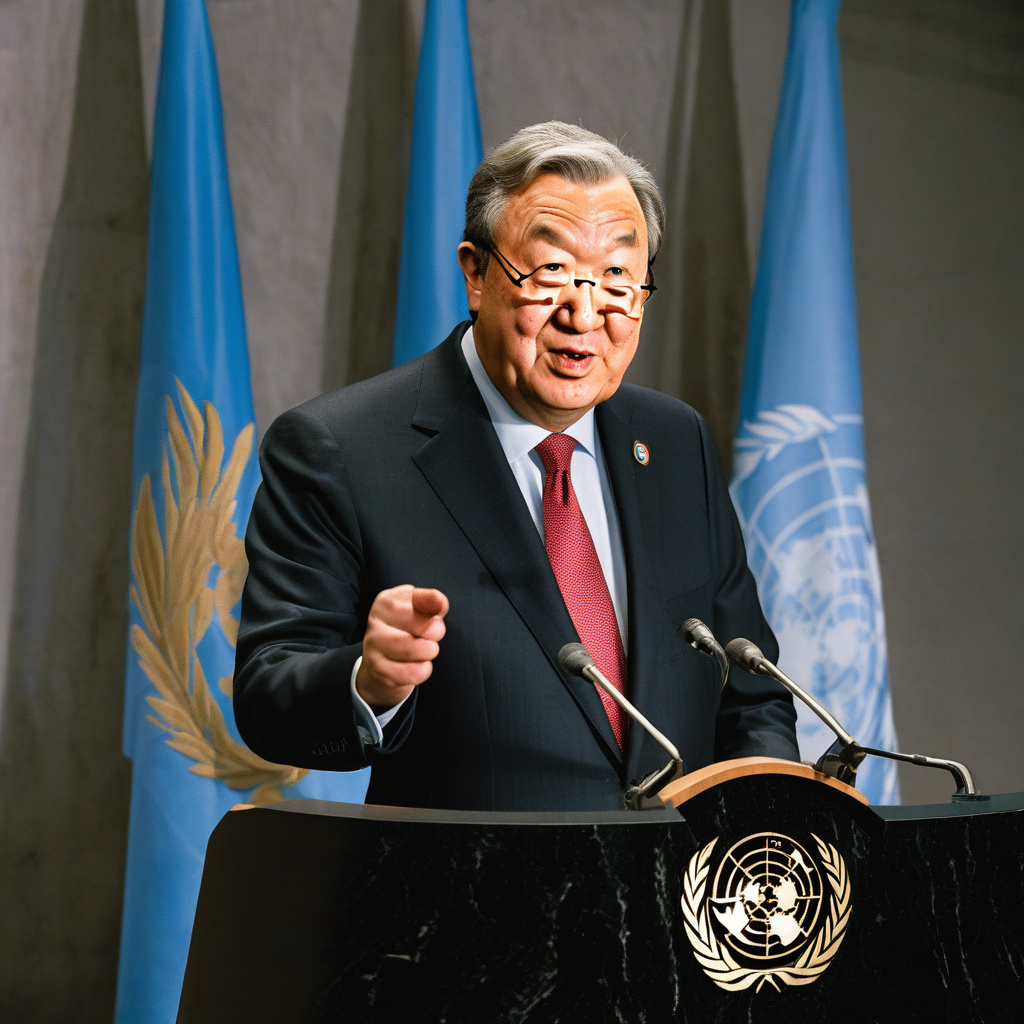The Impact of AI on Global Stability: Why the UN Secretary-General Warns Against Blind Reliance on Algorithms
In today’s digital age, artificial intelligence (AI) plays a significant role in shaping various aspects of our lives, from personalized recommendations on streaming platforms to autonomous vehicles. However, as humanity stands at a turning point where the choices made on AI could shape peace, security, and global stability for generations to come, the United Nations Secretary-General has issued a stark warning against blind reliance on algorithms.
While AI has the potential to revolutionize industries and improve efficiency, the UN Secretary-General’s caution highlights the need for careful consideration of the implications of widespread AI adoption. One of the primary concerns raised is the impact of algorithms on decision-making processes, particularly in critical areas such as national security and conflict resolution.
The use of AI in military applications, for example, raises ethical questions about autonomous weapons systems and the potential for AI to escalate conflicts beyond human control. Without clear guidelines and ethical frameworks in place, there is a risk that AI-powered systems could exacerbate global tensions and undermine strategic stability.
Moreover, the reliance on algorithms in decision-making processes poses challenges in terms of accountability and transparency. As AI systems become more complex and autonomous, there is a growing need to ensure that decisions are made in accordance with ethical standards and human values. The opacity of many AI algorithms further complicates this issue, making it difficult to trace the reasoning behind AI-driven decisions.
In the realm of e-commerce and digital marketing, the UN Secretary-General’s warning also holds relevance. As businesses increasingly turn to AI for customer segmentation, personalized recommendations, and targeted advertising, there is a risk of perpetuating biases and inadvertently influencing consumer behavior. Without careful oversight and regulation, AI algorithms could reinforce existing inequalities and limit consumer choice.
To address these challenges, the UN Secretary-General emphasizes the importance of responsible AI development and deployment. This includes integrating ethical considerations into the design of AI systems, promoting transparency and explainability in algorithmic decision-making, and fostering international cooperation to address the global implications of AI technology.
One example of responsible AI implementation can be seen in the field of retail, where companies are using AI to enhance the customer experience while upholding ethical standards. By leveraging AI-driven analytics, retailers can gain valuable insights into consumer preferences and behavior, enabling them to tailor their offerings more effectively. However, it is crucial for retailers to prioritize data privacy and security, as well as to ensure that AI algorithms are free from bias and discrimination.
In conclusion, while AI has the potential to drive innovation and progress in various fields, including e-commerce and digital marketing, the UN Secretary-General’s warning serves as a timely reminder of the need for caution and foresight. By approaching AI development with a focus on responsibility, transparency, and ethical considerations, humanity can harness the full potential of AI while safeguarding peace, security, and global stability for future generations.
AI, Algorithms, UN Secretary-General, Global Stability, Responsible AI
